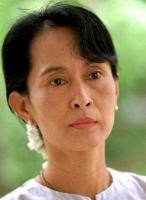Last week’s historic visit to Myanmar by U.S. Secretary of State Hillary Clinton represents the culmination of the Obama administration's policy shift toward the pariah state. Launched in September 2009 to establish a new starting point in the relationship between the two countries, the engagement with Myanmar is part of the broader U.S. effort to play a primary role in the fast-evolving Asia-Pacific region. By contrast, the European Union seems unable to keep up with the economic and political changes taking place in Asia, and instead appears simply to follow Washington’s lead without needed policy debates within the union. EU policy toward Myanmar is a case in point.
Brussels appointed Piero Fassino as its first special envoy for Myanmar in November 2007, just eight weeks after the Myanmarese military had violently cracked down on peaceful domestic protesters. The position was meant to underline the importance that the EU attached to “democratic change, reconciliation, the improvement of the human rights situation and development in Myanmar.” But the timing of the appointment suggested that it was dictated more by the urgent need to respond to public opinion than by a true common European strategy.
One of Fassino’s main goals as special envoy was to foster dialogue among the different stakeholders in Myanmar, including the military authorities, pro-democracy leaders such as Aung San Suu Kyi, ethnic minorities, civil society and religious figures. But due to EU restrictions on diplomatic contacts with Myanmarese officials, Fassino was not allowed to visit the country, making it impossible to accomplish this goal.

